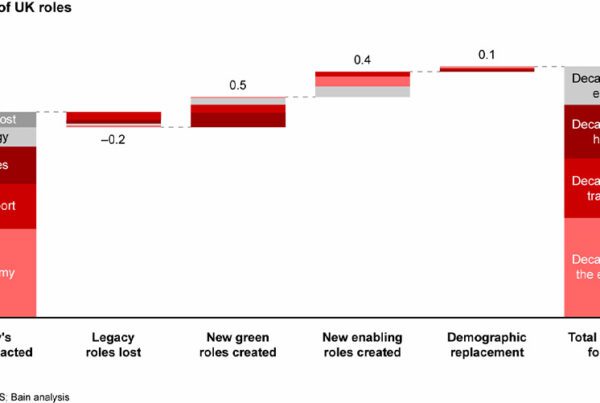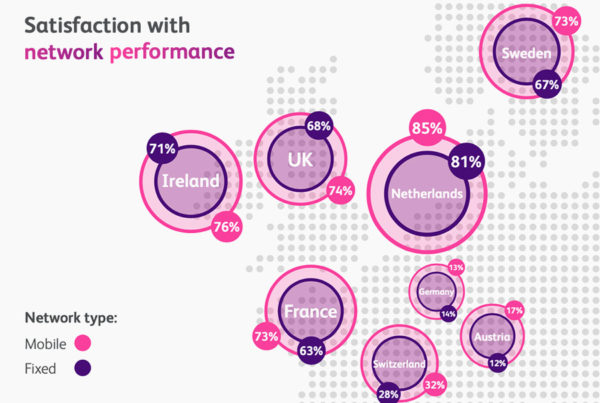With globalisation and technological advances having tightly interlinked the world’s economies, a downturn in one country threatens to rapidly spread to others. Richard Jeffery, Chief Executive Officer at ActiveOps, explains why businesses across the UK, US and Australia need to take action in the face of an impending global recession.
The world has never been more globalised than it is today. International reach and connections across borders power change and success through hardship, and the links forged between nations and their economies can result in a domino effect when catastrophe strikes.
From America to Europe, Asia to Africa, there are widespread and volatile challenges facing every economy – and every business. In particular, the threat of a global recession is hanging heavy over the heads of business leaders. On top of the pandemic, the war in Ukraine has slowed economic recovery, disrupted global supply chains, and drastically increased the cost of living.

The World Bank is therefore warning that a recession is on the horizon, and that means that organisations need to start considering how they will prepare for that eventuality – now.
Look ahead
2008 was the last time the UK and US experienced a recession, whereas Australia has remained mostly unscathed by the outside world, staving off sharp economic downturn since the early 90s.
2008 holds lessons for today’s leaders, but the world is now a very different place. For Australian businesses, the last recession is a distant memory that doesn’t serve much use in today’s climate. So, dusting off previous response plans – such as outsourcing, redundancies and headcount freezes – is likely to fail. What’s needed to ensure success is a deep understanding of your operation and an accurate read of the current markets on a global scale.
According to ActiveOps’ recent report, ‘Are you recession ready? How to do more with less’, recession is likely but 89% of organisations are yet to begin preparations. This is according to 1,000 operations professionals in finance and banking across the UK, US and Australia.
88% of UK respondents felt that a recession is likely in the next 12 months, in contrast to 77% of US respondents and 77% of Australian respondents. Despite many expecting a recession, the number of businesses that have started preparations is shockingly low. Just 5% of Australian businesses have started to ready themselves, while just 11% of UK and 9% of US organisations have preparations underway.
In fact, the majority of businesses across the three markets intend to start preparing in two to six months – by which time we may be facing a deep recession already, with difficult decisions needing to be made immediately in order to weather the storm. When in fact, by preparing now, businesses can significantly improve their outlook.
Expecting the expected
Rough seas ahead are anticipated, and it’s no surprise. Recession veterans are no stranger to economic downturn and its consequences, and most senior leaders will have experienced a global or national financial crisis in their time. This has often resulted in redundancies, budget cuts and an increased workload.
This time, senior leaders are expecting to absorb an increased workload with fixed staffing levels. Juniors, in contrast, are expecting that their organisation will review processes to find efficiencies. Experience is no doubt the reason for this difference, and perhaps a belief from recession veterans that the costs associated with process improvements wouldn’t be approved. Time will tell whether the same is true this time around.
There are also concerns from operations employees that if their teams need to reduce costs, they wouldn’t have enough performance improvement opportunities. While cost cutting is almost a certainty during a recession, this may mean that leaders who plan on finding process improvement opportunities may struggle – unless they can find a way to save and budget.
Flexibility is also an essential during economic difficulty, and while no business wants to make fundamental changes to their strategies, there are some tactics that can prove useful. Particularly, retraining and cross-training staff can be implemented to create a more versatile and agile workforce.
According to our report, while more than half of UK, US and Australian operations teams believe that cross-training and retraining will be required to balance the workload during a recession, they also felt that their organisations aren’t prioritising this. Not only does this indicate that employees don’t feel that their workplace is focusing on the right strategies in the face of recession, it also highlights the disconnect between what people think their organisations will do compared with what their organisation needs.
Act now
While there’s no guarantee significant changes won’t need to be made to adapt to a recession, operations teams within the finance and banking sector have an opportunity to avoid disaster and avert the worst-case scenarios that they are expecting.
Organisations need to focus on building resilience and agility, enhancing customer experience, retaining top talent, and making critical technology investments or using the existing tech stack effectively. Visibility into operations needs to be optimised as soon as possible in order to understand work patterns and control capacity. Without this knowledge, it’s impossible to know if your operations can withstand the pressure of a recession. Businesses need to have a true picture of weak spots to see spikes in demand, understand changing workloads and find efficiencies to meet SLAs, enable flexibility to adapt to uncertain workloads and understand what ‘fat’ to trim.
Customer service and employee satisfaction are at risk if your business isn’t prepared. 58% of respondents agreed that if headcount is reduced, then customer service will be sacrificed. When defining strategies, customers must be at the heart of decision making and similarly, must be shared with employees along with a rationale that everyone can buy into, to avoid customer experience and employee engagement suffering.
Take the time to understand your workforce data and empower managers with this knowledge to prioritise the right tasks and cross-team collaboration; so they can lead teams in a way that keeps them engaged and happy, while bolstering morale during difficult times. It’s also important to check in with your employees to ensure their health is cared for and they feel supported.
Your top performers should also be identified as part of recession preparation as retention may be difficult and losing their skills can have a significant impact. Bring the leaders into the fold and share the challenge with them – not only will they be engaged, but you’ll have the benefit of their expertise and ability to lead to support on the road towards recession. Lastly, investing in technology that creates more efficient and effective operations might cost, but it will pay for itself many times over when implemented correctly. From visibility to forecasting, technology has a significant role to play to help businesses become recession ready.
Engaging with employees at all levels, analysing the current position of your business and assessing whether you have the tools, resources and people power to meet organisational objectives in the face of difficulty will be key. It’s also crucial that senior staff communicate with their employees as soon as possible to ensure everyone is aligned on the operation’s response to a recession.
Then, if the worst does happen and international markets are hit with a global recession, your business will be in a strong position to not just survive economic downturn – but thrive.




